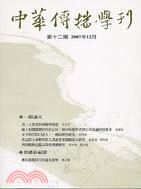 閱覽人數: 2242
閱覽人數: 2242
December
2007
No. 12
頁數:215 - 251
作者(中)
陳志賢
作者(英)
Chih-Hsien Chen
關鍵詞(中)
文化工業 ; 法蘭克福學派 ; 數位複製 ; 靈光 ; 班雅明
關鍵詞(英)
cultural industry ; the Frankfurt School ; digital reproduction ; aura ; Walter Benjamin
中文摘要
本文站在班雅明論述的基礎上,探討自七○年以來,資本主義危機中再結構的文化工業樣貌與策略,並從數位劉象副本的劇擬產權、數位媒體閱聽眾的虛擬剝削、數位內容生產的虛擬綱絡、數位超真實文本的虛擬效果等四層面,分析數位複製時代中文化工業處心積慮重塑的靈光。儘管文化工業備吏靈光與資本主義的商品拜物觀,但在數位時代,使用者仍然可能在放大放慢的劉象內,看到結構矛盾,也有機會在無數擬象間,操練預演更美好更民主的生活。
英文摘要
Based upon Walter Benjamin’s critique of disappearing aura, this paper explores the morphogenesis of contemporary cultural industry and the strategies that have been employed to cope with the capitalist crises which have become more pronounced since the 1970s. The analysis reveals that, contrary to Benjamin’s prediction, the aura of the cultural industry has not been taken shine off thanks to the emphasis on virtual property rights, to the virtual exploitation of audience, and to the virtual production network of digital content, and to the hyper-real effects of digital texts. The articulation of aura and commodity fetishism in the age of digital reproduction has, however, cracked open a space for democratic struggles regardless of the re-created distance between enchanted cultural works and the audience.